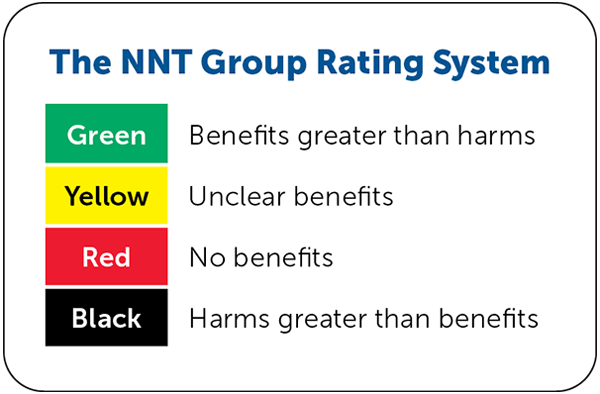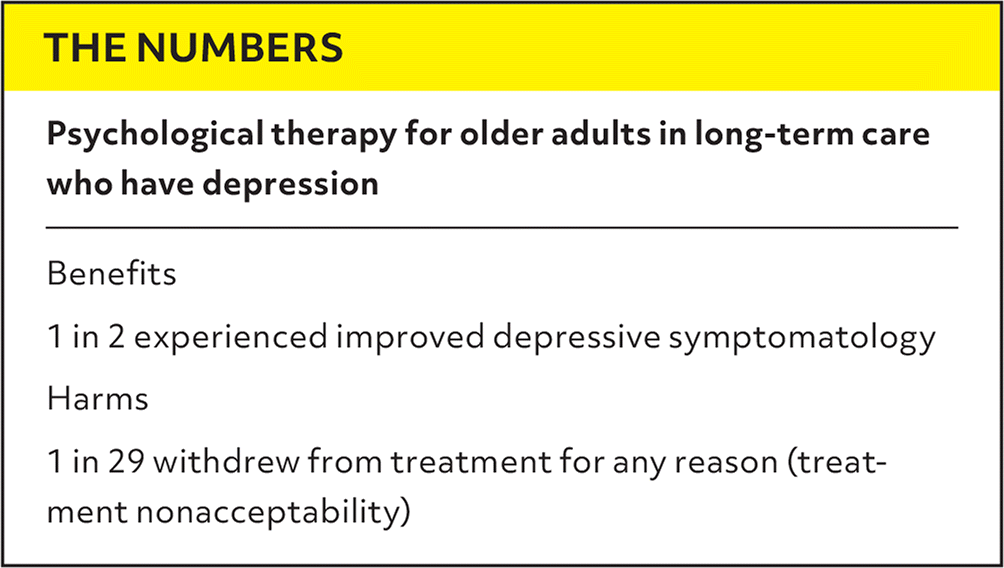
Am Fam Physician. 2024;110(4):411-412
Author disclosure: No relevant financial relationships.

DETAILS FOR THIS REVIEW
Study Population: Total of 873 participants (mean age ranged from 70 to 85 years) enrolled in 19 trials in long-term care facilities
Efficacy End Points: Primary: depressive symptomology; secondary: depression remission, quality of life or psychological well-being, anxious symptomatology, physical functioning
Harm End Points: Treatment nonacceptability, agitation, adverse effects

| Psychological therapy for older adults in long-term care who have depression |
|---|
| Benefits |
| 1 in 2 experienced improved depressive symptomatology |
| Harms |
| 1 in 29 withdrew from treatment for any reason (treatment nonacceptability) |
Narrative: Depression in older adults in long-term care is especially common and can significantly affect quality of life and mental and physical well-being. Pharmacologic treatment for depression in older adults is often limited by an increased risk of adverse effects. Psychological therapy is a potentially safe means of addressing depression and mood disorders in this patient population.1
Subscribe
From $180- Immediate, unlimited access to all AFP content
- More than 125 CME credits/year
- AAFP app access
- Print delivery available
Issue Access
$59.95- Immediate, unlimited access to this issue's content
- CME credits
- AAFP app access
- Print delivery available
